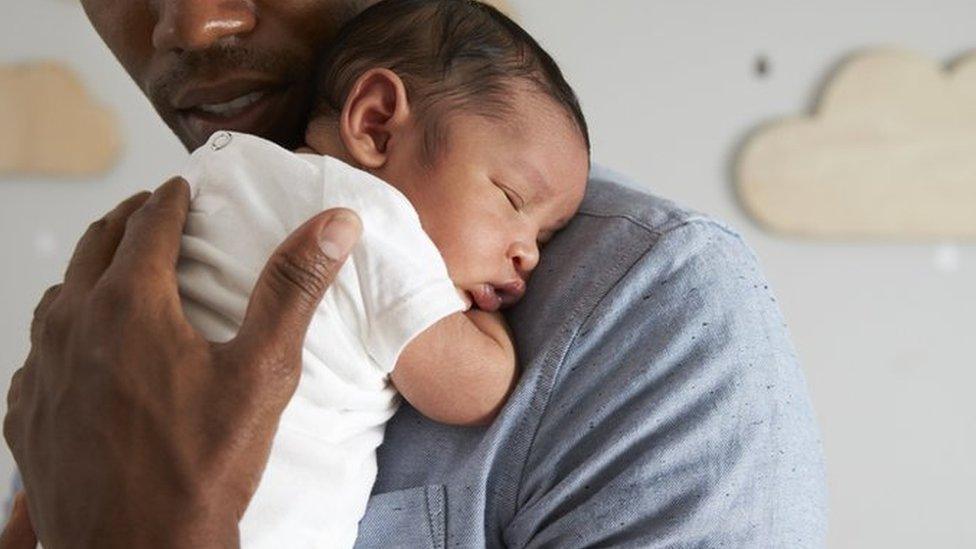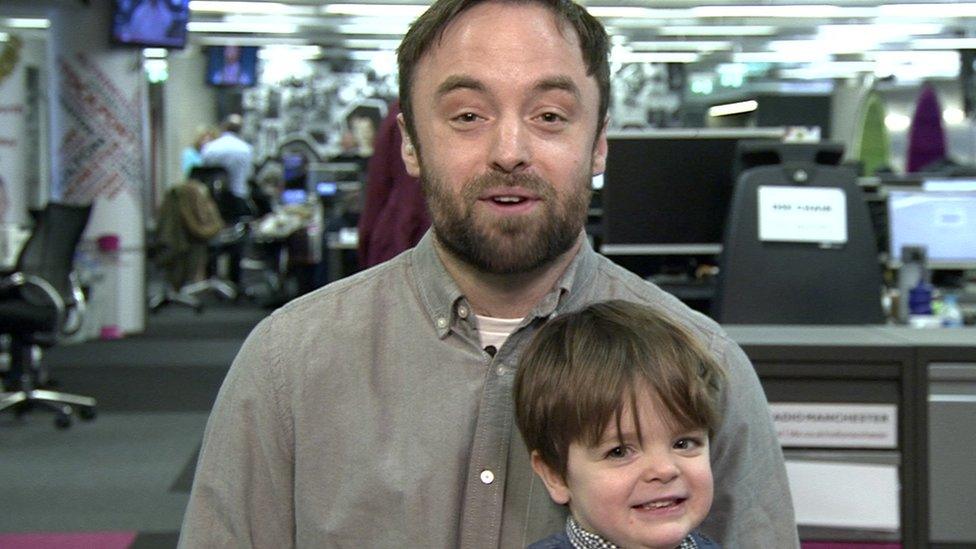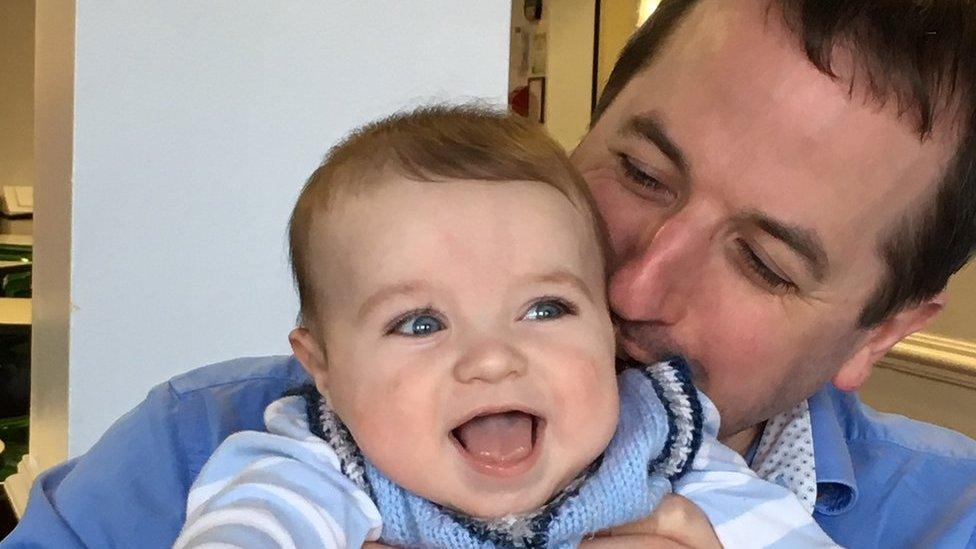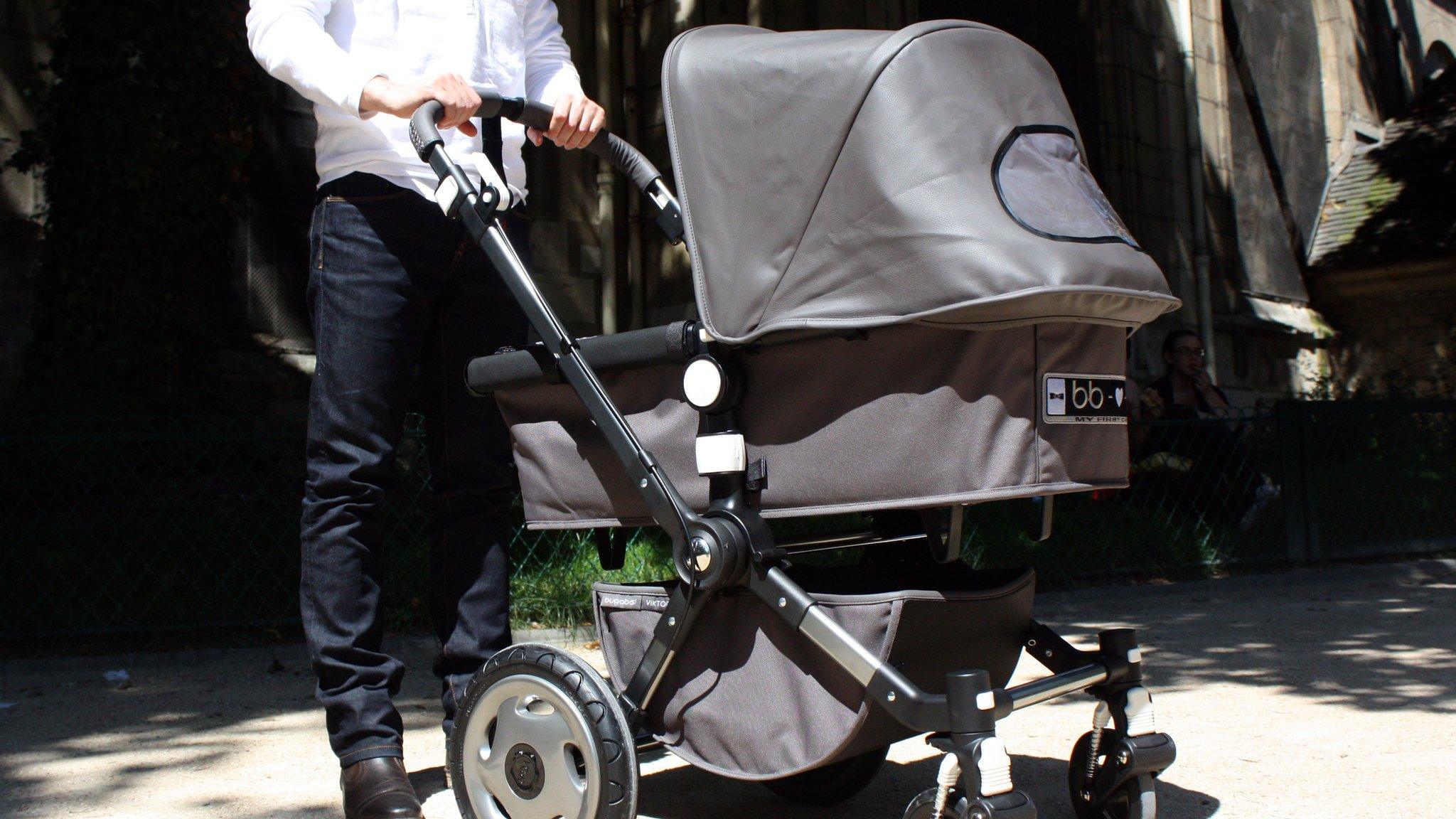Father's paternity pay rights tested at tribunal
- Published
- comments

Stock image: Capita is appealing against a ruling that it failed to give a new father full paternity leave rights
A case that could determine whether firms have to pay fathers on maternity leave the same as women is being heard by the Employment Appeal Tribunal.
The support services firm Capita is appealing against a ruling in June that it failed to give a new father full paternity leave rights.
Madasar Ali, whose wife had post-natal depression, was offered two weeks' pay, whereas a woman is paid for 14 weeks.
A tribunal ruled Mr Ali, a call centre worker, had been discriminated against, external.
The BBC's legal correspondent Clive Coleman says the outcome of the appeal will be binding for similar cases in the future.
Rules changed
In 2015, new rules around shared parental leave came into force to give fathers (or the other parent or partner) the opportunity to stay at home caring for the baby.
For the first two weeks after birth, mothers must still take the time off but the rest of the leave, up to 50 weeks, can be shared between the parents if they meet certain criteria.
The government said about 285,000 working couples would be eligible under the rules.
Figures obtained by BBC Wales from HMRC showed 6,100 fathers and 542,850 mothers in England, and 250 fathers and 27,650 mothers in Wales, received a statutory payment to take time off work with their children in 2016/17.
Employment lawyer Lindsey Bell told BBC Breakfast that companies were giving "enhanced maternity leave over and above" what they have to for women - but not for men.
She said in Mr Ali's case, his wife was being encouraged to go back to work because of her post-natal depression, so he had to take on the childcare - but he was not being paid the same as female colleagues.
She said in that situation "that does seem to be discriminatory".
John Adams, from Dad Blog UK, is the main carer for his two children. He told BBC Breakfast that the leave offered for men and women was "inconsistent".
"It's small [the number of men taking up shared parental leave] but then this is the crux of the issue," he said.
"If men aren't getting the same rights as women, they can't actually get involved in family life, they can't afford to take the time off, so they don't, so from the earliest days they are basically discriminated against."

Tom Higham said he wants equal rights for paternity pay
Tom Higham, who has a one-year-old son Jack, told the BBC Victoria Derbyshire programme: "We are not advocating for lower pay for mothers.
"What we are advocating for is equal rights to pay and compensation for men who take paternity leave, because if you want a balanced family, a balanced economy and all of the positives that ensue for the child and for the family, and for the workplace, then you have to make an effort to make pay more equal."
Josh Lawson, who got 22 weeks' full paternity leave to look after five-month-old son Isaac, told the BBC's Victoria Derbyshire programme it was "absolutely critical to get that time to bond".

What is shared parental leave?
New rules came into force in 2015 where up to 50 weeks of leave - 37 weeks of which is paid - can be shared by parents, external if they meet certain criteria
Mothers must still take the initial two weeks after birth, but they can then cut their maternity leave short and exchange it for shared parental leave
Both parents will then have a flexible choice of how to split up the rest of the leave entitlement - of up to 50 weeks
Shared parental leave pay is £140.98 a week or 90% of an employee's average weekly earnings, whichever is lower
Some mothers receive full pay during their maternity leave, rather than the statutory minimum, depending on their employer
Lawyers suggested at the time of the leave's introduction that employers may worry that dads, taking shared parental leave, could bring discrimination claims if the extra pay was not offered to them too
Some mums moving from maternity to shared parental leave may not receive full pay. The details should be in an employment contract

- Published5 April 2015

- Published18 June 2017

- Published12 May 2017
